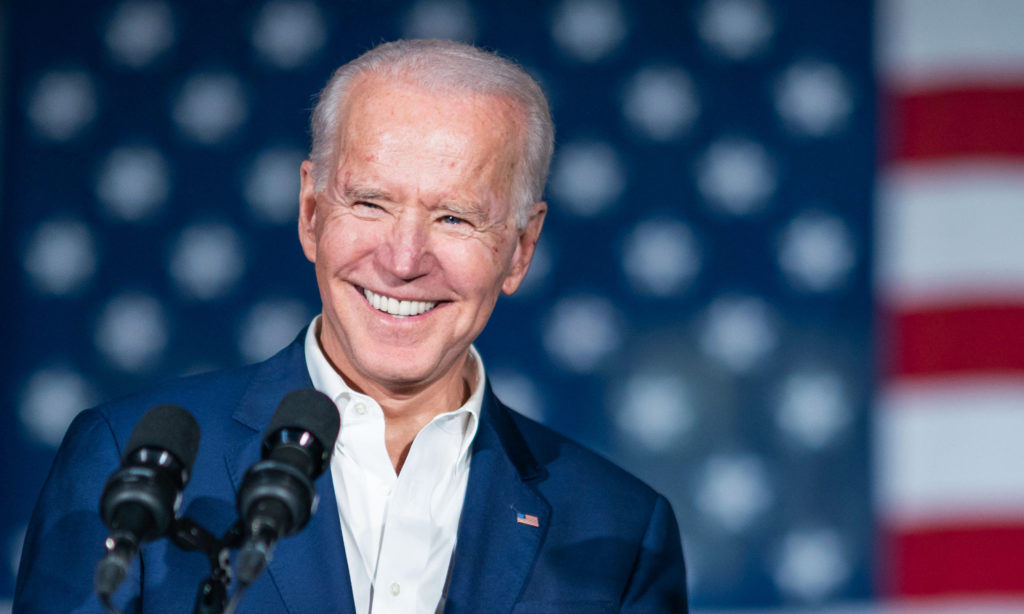
The United States and Iran supposedly both want to restart the failing Iranian nuclear deal, but right now they’re both saying the other side has to act first even as there are more warning signs about the Iranian nuclear threat. US President Joe Biden, in an interview with CBS published to their website on Sunday, said that the US would not remove crippling sanctions on Iran before Iran resumes their compliance with the nuclear accord, known as the Joint Comprehensive Plan of Action (JCPOA).
Biden, in the interview with Norah O’Donnell of “CBS Evening News”, confirmed that Iran would need to stop enriching uranium for nuclear fuel first, before the US gave the Islamic Republic economic relief.
However, on the same day Biden’s interview was published, Iran Supreme Leader Ayatollah Ali Khamenei posted to Twitter making the opposite demand: The US must act first before Iran will resume their commitments under the JCPOA.
“If they want Iran to go back to its #JCPOA commitments, the U.S. must practically end all sanctions. We will verify if it has been done properly. If yes, we will go back to our JCPOA commitments,” tweeted Khamenei. The Iranian leader doubled down in a follow-up tweet, saying, “We set the condition and the condition will not be retreated from.”
The public back-and-forth comes one day after The Wall Street Journal reported that the United Nations’ nuclear watchdog found in Iran new traces of material that was radioactive, raising more questions about Iran’s covert nuclear weapons program. The International Atomic Energy Agency (IAEA) made the discovery while reviewing samples from sites visited last year and may mean Iran’s has conducted nuclear weapons work at some point in the past. However, that suspicion has already been confirmed by the Iranian nuclear files uncovered by Israeli intelligence. It was unclear from The Wall Street Journal report—which was based on accounts from diplomats and not official comment from the IAEA—if the latest discovery adds new concerns or just reinforces existing ones.
Either way, Iran’s long-standing nuclear dispute with the international community has posed the threat of the world’s leading-state-sponsor of terrorism obtaining nuclear weapons. The JCPOA was intended to try and push back on Iran’s nuclear capabilities in exchange for sanctions relief. However, the deal has sunset clauses that terminate nuclear restrictions and other problems. This lead the Trump Administration to pull the US out of the deal years ago and resume harsh sanctions on Iran.
The Islamic Republic retaliated, ending their compliance with key restrictions under the JCPOA and moving closer to having the nuclear fuel needed for nuclear weapons, although additional technical requirements are also needed to build the bomb and it is unclear how far Iran has come in that effort.
US Secretary of State Antony Blinken, in a recent interview on MSNBC’s “Andrea Mitchell Reports program” republished by the State Department, said that Iran had already gotten within months of having enough enriched uranium for a bomb and that “if Iran continues to lift some of these restraints imposed by the [international nuclear] agreement, that could get down to a matter of weeks.”
Israel, meanwhile, has repeatedly urged the US not to rejoin the JCPOA due to its limitations. In comments in early January before Biden took office, Netanyahu was quoted by his office as saying the US sanctions campaign “must be continued to prevent Iran from continuing its campaign of aggression and terror throughout the region and to prevent Iran from rushing to a nuclear arsenal.”
Warned Netanyahu, “If we just go back to the JCPOA, what will happen and may already be happening is that many other countries in the Middle East will rush to arm themselves with nuclear weapons. That is a nightmare and that is folly. It should not happen.”
(By Joshua Spurlock, www.themideastupdate.com, February 7, 2021)
